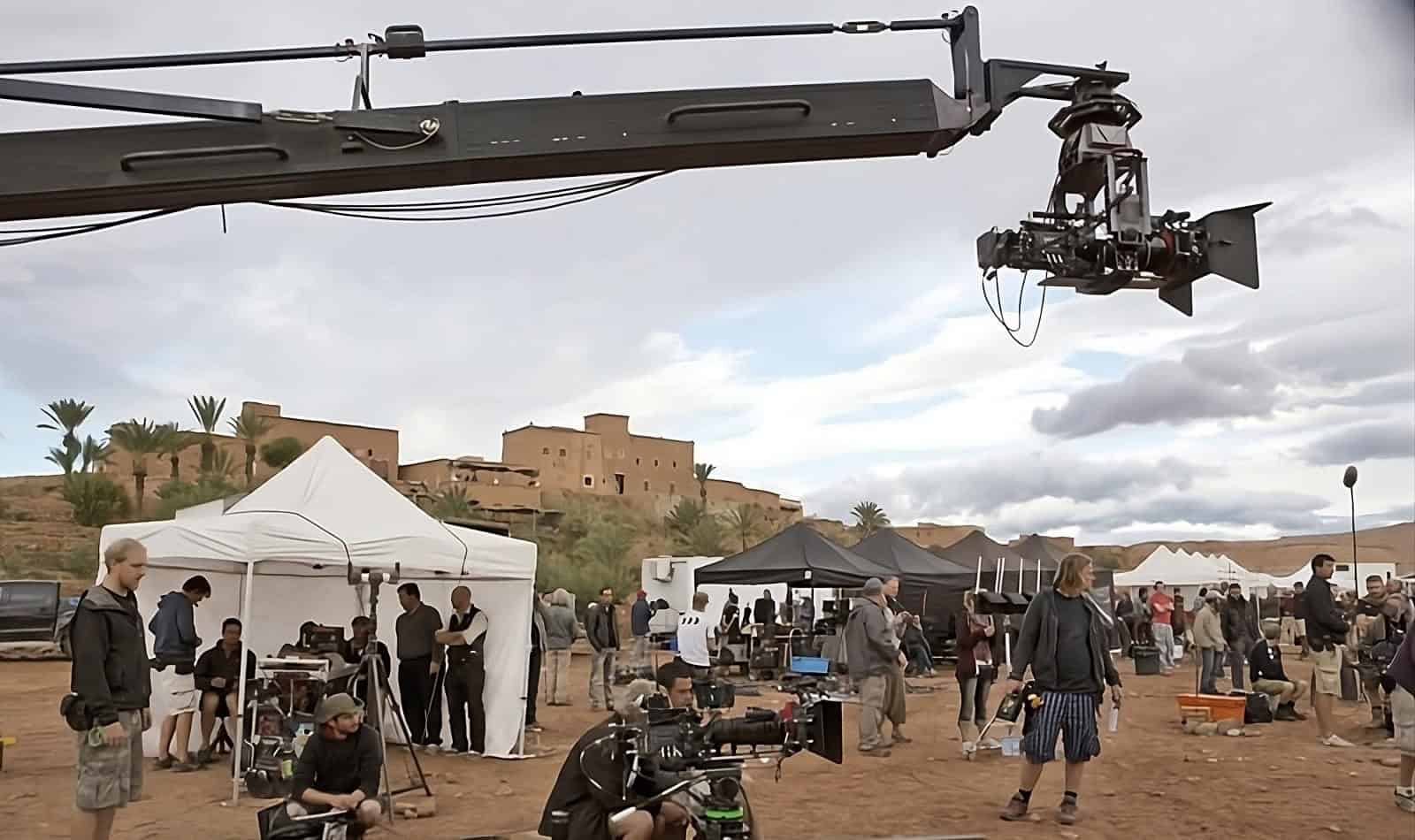
Understanding the Working Conditions, Overtime, and Pay Rates for Film Crews in Morocco
Morocco’s enchanting appeal as a filming location remains unrivalled, with its remarkable cultural diversity, captivating landscapes,

Morocco’s enchanting appeal as a filming location remains unrivalled, with its remarkable cultural diversity, captivating landscapes,

As a filmmaker, you know that location is everything. It can make or break a movie, setting the tone and capturing

Morocco’s enchanting appeal as a filming location remains unrivalled, with its remarkable cultural diversity, captivating landscapes,
Looking to film in Morocco? Caestus Films is a certified full-service company offering tailored solutions to facilitate your production process in Morocco. From location scouting and film permits to crew hiring and equipment rental, our experienced team of line producers and fixers can handle projects of any size and budget. Contact us today for a free quote.
Morocco’s Film Incentives: A Complete Guide
In recent years, Morocco has emerged as a top filming destination, attracting international filmmakers with its stunning landscapes, rich culture, skilled workforce, and lucrative financial incentives. This comprehensive guide will walk you through the process of applying for Moroccan film incentives and explain how to maximize their benefits for your production.
Discover the Alluring Benefits of Filming in Morocco
Morocco’s popularity among international filmmakers can be attributed to successful productions like “Game of Thrones”, “Mission Impossible”, “Indiana Jones” and “John Wick” which showcased the country’s diverse landscapes and cultural richness. With its attractive financial incentives, Morocco has become the go-to location for filmmakers around the world.
Exploring Moroccan Film Incentives: Tax Rebates and Beyond
Understanding the Rebate
The Moroccan government offers an enticing 30% tax rebate for feature films, TV series, TV films, docu-fiction, documentaries, and long-form fiction for the internet.
To be eligible, your production must have a minimum qualified expenditure of $1 million and at least 18 shooting days (including set building) in Morocco.
The Reimbursement Process
Expenses must be processed through a Moroccan bank’s Special Purpose Vehicle (SPV). A local bank account certificate is essential for the local production team to finalize paperwork with the Moroccan tax administration, ensuring a VAT tax exemption for foreign production. This exemption applies to all qualifying supplier and crew invoices exceeding 5,000.00 dirhams (approximately $500).
Collaborating with a Certified Moroccan Production Company for a Seamless Experience
The Importance of Local Partnerships
First of all, to be able to shoot in Morocco, it’s crucial to partner with a local production company certified by the Moroccan Cinematographic Center (CCM). This partnership will help you ensure your project runs smoothly and meets all the necessary criteria for Moroccan film incentives, guide you through the application process, liaise with local authorities, and assist with securing all necessary permits.
Obtaining a Filming Permit: Your Gateway to Filming in Morocco
Securing the Necessary Permits
After partnering with a Moroccan production company, the next step is to secure a shooting permit from the Moroccan Cinematographic Center (CCM). This permit is an essential component for any project planning to film in Morocco.
A Complete Guide to Obtaining Moroccan Filming Permits for Foreign Productions
Eligibility Criteria for Moroccan Film Incentives: What You Need to Know
Key Requirements for Eligibility
To qualify for Moroccan film incentives, your project must be:
Additionally, your production must meet the following criteria:
Morocco offers a 30% reimbursement on eligible expenses incurred after 28th March 2022 (20% before 28th March 2022).
Navigating the Application Process for Moroccan Film Incentives
Submitting Your Application
To apply for Moroccan film incentives, submit a request to the CCM that includes:
Meeting Deadlines and Expectations for Moroccan Film Incentives
Key Timeframes to Consider
Within 30 days:
Upon receiving initial approval from the CCM, provide a bank guarantee of 5% of the requested financial support within 30 days (renewable only once).
From the date of your deposit, you have:
Receiving Your Support Amount: Understanding the Payout Process
Payout Timeline and Conditions
After 28th March 2022: The Moroccan Cinematographic Center (CCM) transfers the support amount to the production company’s bank account in a single installment within a maximum of 180 days after the commission’s decision on a complete payment request file.
Fulfilling Conditions and Commitments for Production Support
Meeting Requirements for Continued Support
To enjoy the benefits of production support, adhere to the following requirements:
Conclusion: Leveraging Moroccan Film Incentives for Your Production
In conclusion, Morocco’s film incentives provide substantial financial assistance and a simplified filming process for international productions. By understanding the eligibility criteria, following application procedures, and partnering with a CCM-certified production company, you can successfully bring your project to life in this vibrant and enchanting country.
Frequently Asked Questions
What kind of productions are eligible for Moroccan film incentives?
Feature-length films, television series, TV films, docufiction, documentaries, and long-form fiction for the internet are eligible for Moroccan film incentives.
What is the minimum qualified expenditure for Moroccan film incentives?
The minimum qualified expenditure is $1 million, with at least 18 shooting days (including set building) in Morocco.
What is the process for processing expenses through a Moroccan bank’s SPV?
Your local production team must obtain a local bank account certificate to finalize paperwork with the Moroccan tax administration, ensuring a VAT tax exemption for foreign production.
Why is it important to partner with a certified Moroccan production company?
A certified Moroccan production company is essential for ensuring your project runs smoothly, guiding you through the application process, liaising with local authorities, and securing all necessary permits.
What is the process for obtaining a shooting permit from the Moroccan Cinematographic Center (CCM)?
After partnering with a Moroccan production company, submit a request to the CCM that includes the project nature, distribution nature, planned duration of work in Morocco, investment program, total planned spend in Morocco, eligible expenses in Morocco, and financial support requested.
A Complete Guide to Obtaining Moroccan Filming Permits for Foreign Productions
What are the key requirements for eligibility for Moroccan film incentives?
Your production must be a feature-length film, television series, TV film, docufiction, documentary, or long-form fiction for the internet and spend at least $1 million in Morocco, with at least 18 days of work in Morocco (including set building).
tags :
SHARE:
Popular Posts
Categories